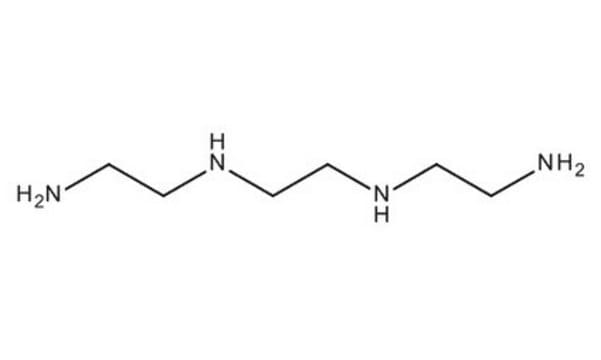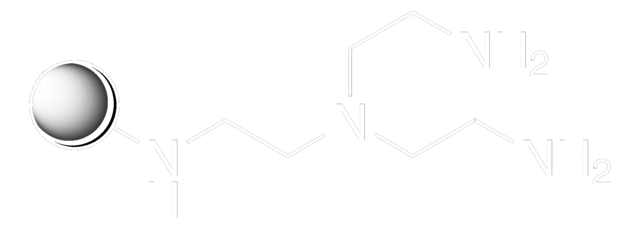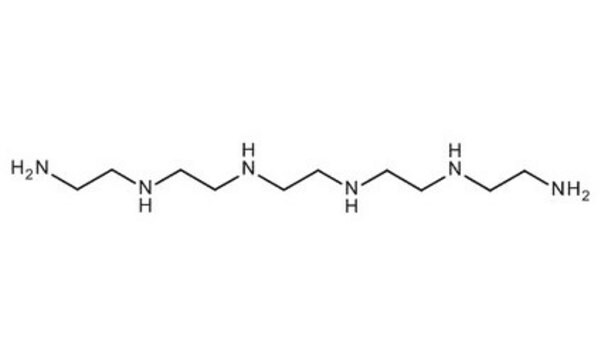132098
Triethylenetetramine
technical grade, 60%
Synonym(s):
DEH 24, EPH 925
About This Item
Recommended Products
grade
technical grade
Quality Level
vapor density
~5 (vs air)
vapor pressure
<0.01 mmHg ( 20 °C)
form
liquid
concentration
60%
refractive index
n20/D 1.496 (lit.)
bp
266-267 °C (lit.)
mp
12 °C (lit.)
solubility
alcohol: soluble
water: soluble
density
0.982 g/mL at 25 °C (lit.)
functional group
amine
SMILES string
NCCNCCNCCN
InChI
1S/C6H18N4/c7-1-3-9-5-6-10-4-2-8/h9-10H,1-8H2
InChI key
VILCJCGEZXAXTO-UHFFFAOYSA-N
Gene Information
human ... TERT(7015)
Looking for similar products? Visit Product Comparison Guide
General description
Application
- Triethylenetetramine in surface passivation: Research on the photooxidation inhibition of pyrite highlights the role of DTC-TETA (dithiocarbamate-triethylenetetramine) in modifying photogenerated carrier migration pathways, indicating its potential in environmental chemistry and surface science (Shu et al., 2024).
- Poly(urethane-urea) microcapsules crosslinked by triethylenetetramine: An investigation into poly(urethane-urea) microcapsules revealed that triethylenetetramine as a crosslinker can modulate the release of pesticides, providing insights into controlled release systems in agricultural sciences (Wang et al., 2024).
Features and Benefits
Signal Word
Danger
Hazard Statements
Precautionary Statements
Hazard Classifications
Acute Tox. 4 Dermal - Aquatic Chronic 3 - Eye Dam. 1 - Skin Corr. 1B - Skin Sens. 1
Storage Class Code
8A - Combustible corrosive hazardous materials
WGK
WGK 2
Flash Point(F)
264.2 °F
Flash Point(C)
129 °C
Personal Protective Equipment
Choose from one of the most recent versions:
Already Own This Product?
Find documentation for the products that you have recently purchased in the Document Library.
Customers Also Viewed
Our team of scientists has experience in all areas of research including Life Science, Material Science, Chemical Synthesis, Chromatography, Analytical and many others.
Contact Technical Service

















